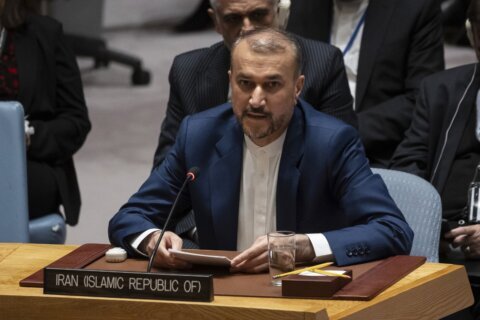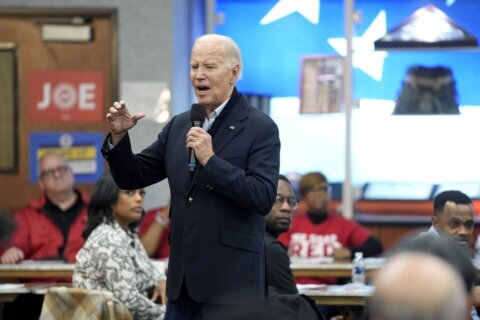BEIRUT (AP) — Lebanese security forces opened fire in violent clashes Wednesday with dozens of protesters who took to the street in the country’s north for a third consecutive day to denounce deteriorating living conditions amid a strict lockdown to prevent the spread of the coronavirus.
At least one protester was hit by live ammunition and fell to the ground, blood pouring from his thigh. Police said they were responding to hand grenades thrown by the protesters that injured nine policemen, including three officers.
The violence marked a sharp escalation in confrontations in the northern city of Tripoli that began on Monday and continued for three straight days into Wednesday night. The city is the second largest in Lebanon, and the most impoverished.
Earlier, police fired tear gas and water cannons at dozens of young men who tried to storm a government building in the city. The Red Cross, in a statement, said its volunteers transported 11 people to hospital, while 63 others were lightly injured and treated on the spot.
Amid a dramatic surge in coronavirus infections, the government has imposed a nearly month-long nationwide lockdown and round-the-clock curfew, the strictest since the virus hit Lebanon.
The measures have exacerbated a crippling economic and financial crisis that preceded the pandemic in this small Mediterranean country of nearly 5 million people and over 1 million refugees. The Lebanese currency has tumbled, losing over 80% of its value. Banks have imposed controls on withdrawals and transfers to protect dwindling foreign reserves. Unemployment and inflation have skyrocketed and tens of thousands have been thrown into poverty.
On Wednesday, Lebanon hit a new daily record for COVID-19 fatalities, registering 76 deaths Hospitals are struggling with COVID-19 patients, reporting near full occupancy in ICU beds. Nearly 290,000 infections have been recorded since last February and 2,553 deaths.
The protests are also a reflection of the political divisions and deep frustration at politicians who have been deadlocked over the formation of a new government for nearly six months. The government resigned in August following a massive blast at Beirut’s port, which killed over 200 people and injured thousands.
Lebanon’s ruling class has faced rising popular anger since protesters took to the streets in October 2019, in the largest-ever nationwide protests in the country. Demonstrators accused them of mismanaging and robbing the country of its resources and driving it into poverty. The protests later died down, in part because of the pandemic but also because the political class held on to power and divisions emerged among the demonstrators.
On Wednesday, Lebanese officials unveiled the national vaccination plan, saying the government aims to inoculate around 80% of the population by the end of the year. The first batch of Pfizer-BioNTech vaccines is scheduled to arrive in Lebanon by mid-February.
Copyright © 2024 The Associated Press. All rights reserved. This material may not be published, broadcast, written or redistributed.







